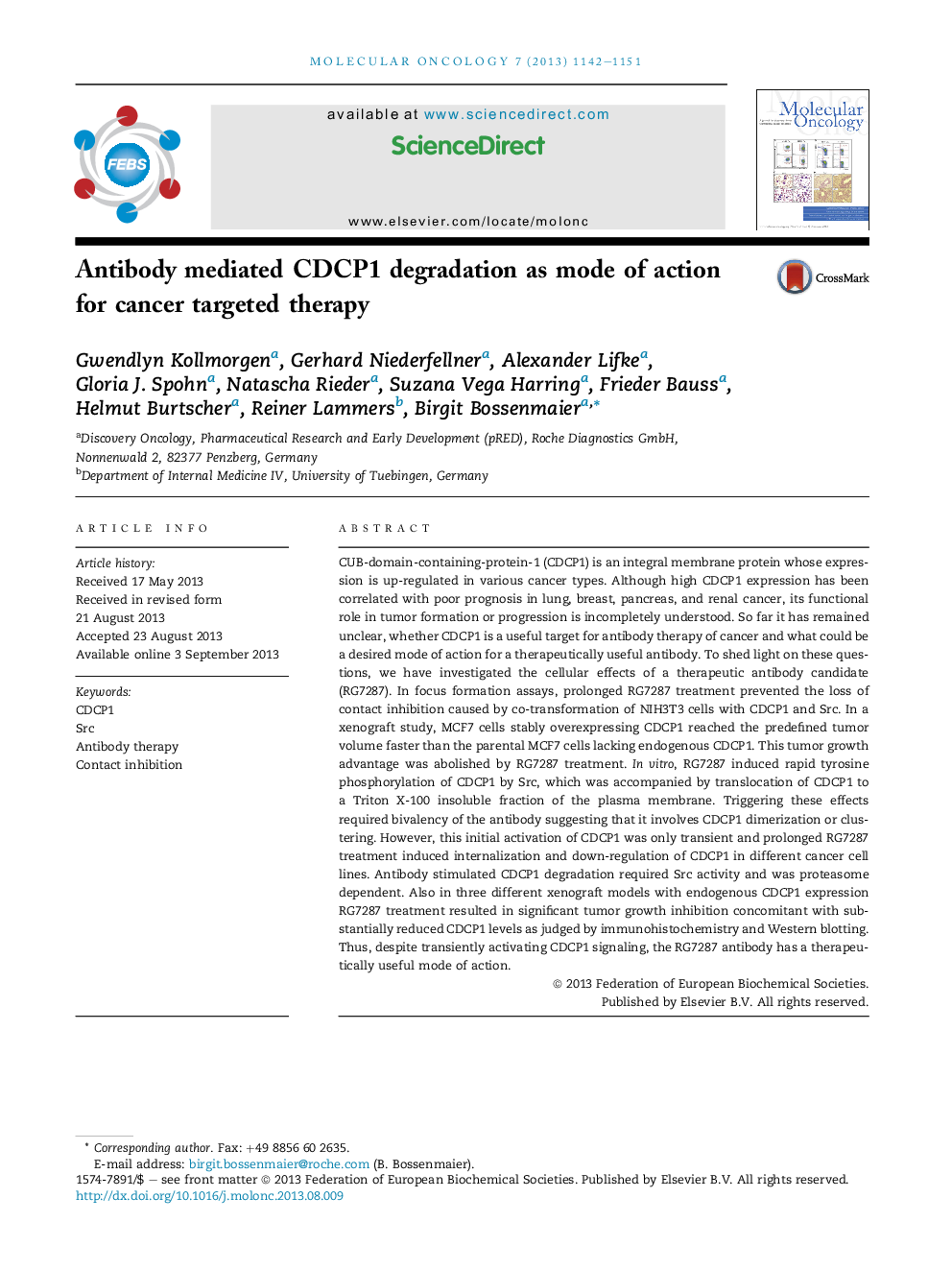| کد مقاله | کد نشریه | سال انتشار | مقاله انگلیسی | نسخه تمام متن |
|---|---|---|---|---|
| 2145624 | 1088806 | 2013 | 10 صفحه PDF | دانلود رایگان |

• Antibody RG7287 induces CDCP1 clustering, tyrosine phosphorylation and downregulation.
• RG7287 blocks transformation of NIH3T3 cells induced by Src and CDCP1 co-transduction.
• Stable overexpression of CDCP1 in MCF7 cells leads to faster growing xenograft tumors.
• RG7287 treatment inhibits tumor growth in three different xenograft models.
CUB-domain-containing-protein-1 (CDCP1) is an integral membrane protein whose expression is up-regulated in various cancer types. Although high CDCP1 expression has been correlated with poor prognosis in lung, breast, pancreas, and renal cancer, its functional role in tumor formation or progression is incompletely understood. So far it has remained unclear, whether CDCP1 is a useful target for antibody therapy of cancer and what could be a desired mode of action for a therapeutically useful antibody. To shed light on these questions, we have investigated the cellular effects of a therapeutic antibody candidate (RG7287). In focus formation assays, prolonged RG7287 treatment prevented the loss of contact inhibition caused by co-transformation of NIH3T3 cells with CDCP1 and Src. In a xenograft study, MCF7 cells stably overexpressing CDCP1 reached the predefined tumor volume faster than the parental MCF7 cells lacking endogenous CDCP1. This tumor growth advantage was abolished by RG7287 treatment. In vitro, RG7287 induced rapid tyrosine phosphorylation of CDCP1 by Src, which was accompanied by translocation of CDCP1 to a Triton X-100 insoluble fraction of the plasma membrane. Triggering these effects required bivalency of the antibody suggesting that it involves CDCP1 dimerization or clustering. However, this initial activation of CDCP1 was only transient and prolonged RG7287 treatment induced internalization and down-regulation of CDCP1 in different cancer cell lines. Antibody stimulated CDCP1 degradation required Src activity and was proteasome dependent. Also in three different xenograft models with endogenous CDCP1 expression RG7287 treatment resulted in significant tumor growth inhibition concomitant with substantially reduced CDCP1 levels as judged by immunohistochemistry and Western blotting. Thus, despite transiently activating CDCP1 signaling, the RG7287 antibody has a therapeutically useful mode of action.
Journal: Molecular Oncology - Volume 7, Issue 6, December 2013, Pages 1142–1151